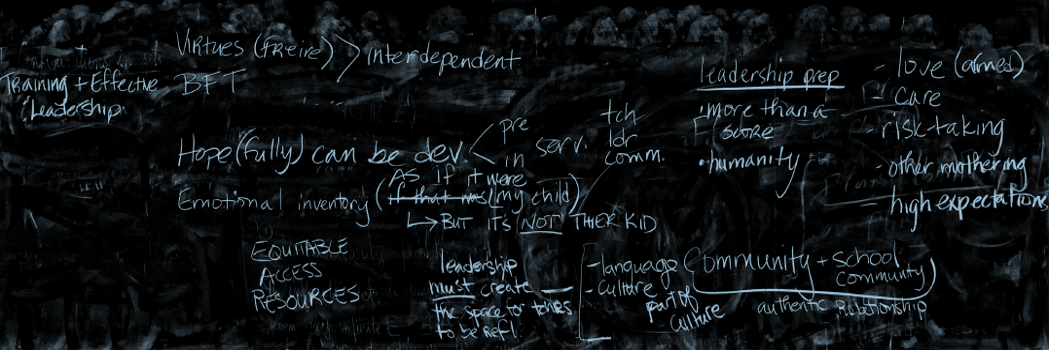Basically, what these readings reinforced for me is that there are different ways to care. The communities that we as educators come from have direct impacts on the ways in which we envision and practice caring. Moreover, the communities we come from affect who we see as capable of producing care or worthy of receiving care. These works highlighted, specifically the Dolon-Row (2005) piece, how race and racism affect the ways in which educators and school administrators care. While these works cover who cares, how they care, and why they care, the works still don’t address the issue we’ve been asking about all semester: how do we teach empathy? In other words, how do we teach people to care about us if they don’t see us or interact with us outside of school settings and racialized media images?
Valenzuela (1999), who builds upon Nodding’s (1984) care-centered work, articulates differences between authentic and aesthetic caring. Too often, educators from mismatched communities to the ones they serve focus on aesthetic caring. Ariel Tichnor-Wagner & Danielle Allen (2016) go further in developing a Typology of Care Framework. The framework helps “carers” understand how their type of care may be received by students. But how can caring authentic and hard care be imbued into educators that have radically different social and racial experiences than the students they serve? Aldfe (2002)r, DeJesus (2006), and Rivera McuCthern (2012) all argue that caring starts with a nurturing environment where students know they matter and are supported by the educator and holds/challenges students to achieve high levels of academic success.




Hi Jordan!
Your post really resonates with me, specifically the question: how do we teach empathy? After going through the readings this week, I was left wondering a lot about the how. How do we move teachers from soft to hard caring? There is so much to unpack there, starting with, like you said, racial identity. Is it possible for educators from different backgrounds than their students to embody hard caring? I believe that it is but it takes work – a lot of internal work. Unlearning systems of oppression starts from within but I feel like schools place little emphasis on self love and the inward journey that is so crucial in antiracist work. I definitely want to continue to dig into this topic this semester because, like we have noted and the readings touch on a lot, cultural mismatch is REAL in classrooms and I am wondering if it is possible to work with the teachers who don’t look like their students to work towards understanding and empathy. I think this starts with fully embedding themselves in the communities where they work and getting to know their students and their students’ families on a much deeper level.
Bahahahahaha! I didn’t even read your response. I just wanted to say that that title is dope!